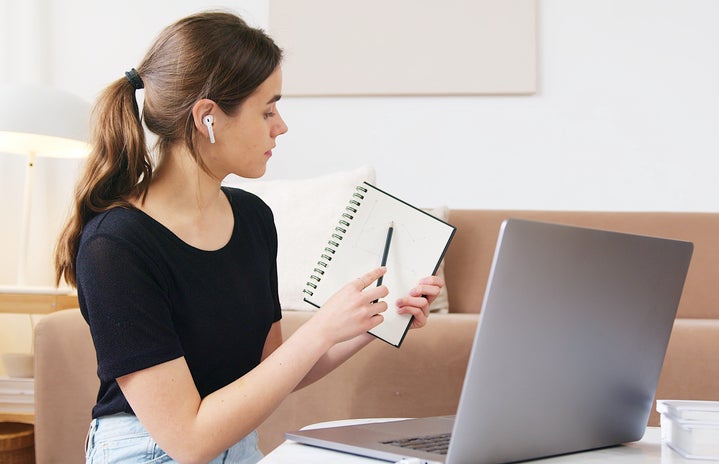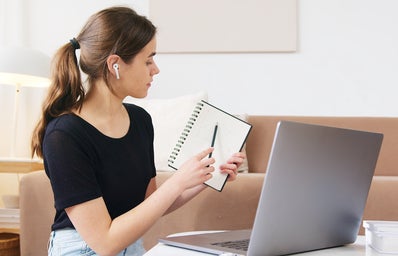Alessandra Seixas, single mom of two: Alice, 10 years old, and Elisa, just 5 years old. She already faced difficulties in raising her kids before pandemic and now, without a job, and having to concentrate full strength in helping girls understand the quarantine period and the “new normal”, this became way more hard to deal with by herself. Alessandra has problems with education, school, money, and maintaining mental health.
It’s not news for anyone that having a child requires a lot of different cares. Financial, education and psychology support, it’s only three of many. With only one person responsible for raising the kid and having to concern about all the supports, it could be harder, especially for a woman, who already suffers in society with unequal salaries and opportunities. According to 2015 datas from institute “Data Popular”, 21% of moms in Brazil are single, a little more than 20 million women. Alessandra Seixas is part of this number and tells us about her difficulties, accentuated even more in quarantine.
- Her daily battle
-
Besides being a single and unemployed mom in this period of humanity, Alessandra belongs to atypical maternity – that means mom of childs with special needs. Elisa, the younger, has a neuro psychomotor delay, a condition responsible for delay socialization, communication, and cognitive ability. This makes things even harder since the little girl was prevented from seeing people like she used before, like teachers and friends, outside of her house.
“The most difficult part was the sudden change in routine, having to deal with all by myself, and having to explain what’s going on in the world to them, why these things are happening, since neither me was understanding right”, says. “There were a lot of health recommendations, a crazy virus out there, a lot of uncertainty about everything, anguish, and everything being passed alone”.
Alessandra was unemployed, living with the money given by the government to help people in financial crisis during this period chasing after what it takes to survive with kids. Classes were adapted to online, but she didn’t have the internet. “I don’t have a computer either, so I have to buy it for my older one”, says. “For Elisa, I always go to school to take her lessons and help her do them here”. She also says that with the 5 year old girl, the tasks were more difficult because of her neurological problem. “she has difficulties to focus, understand, and express herself even more. With Elisa, or is 8, or is 80”.
- How is she dealing?
-
These topics were pretty difficult for Alessandra to deal alone. Controlling their girls, making them do their duties, hearing from the kids that they are hating it and not learning anything, provide a good quality of life, and end up making an unsustainable situation. That’s when she realized that she had to take complete control of the situation more than never and be a perfect support for her children.
“I started to do a lot of online courses to keep my mind healthy and occupied, to be a good mother for them. So, after that, I also include Elisa and Alice in courses to help them too”. Now they all know sign language and how to make a vegetable garden, and Alessandra also did online classes related to black maternity, racism and management. Everything to be good with girls, but is not always thousand wonders. “It’s pretty complicated, or you make yourself present to your child, or you bring money home”, claims the woman.
- What does society say?
-
She feels that society blames women that are single moms, and, in her case, she could be blamed more two times: for being black and from an atypical maternity. These are reasons that make searches for a job harder too during pandemy. Embarrassing questions in job interviews are made, like: “How long have you don’t had a man in your life?”, “Who is going to take care of your kid?”, “Are you seeing someone lately?”, are some of them.
She exalts how she and another thousands of women have to fight everyday to maintain a family and how this period brings greater overhead. “Me and other single moms, can not wake up one day and think of giving up. Our best things in life depend on us and in our strength, mainly now, in quarantine”. She believes that it’s good to understand children better, but that it’s an everyday challenge that you can not just “get rid of it”.
Alessandra also has an account on Instagram (@ale08sandra), where she speaks more about being a single mom in an atypical maternity, and as a black woman. She explains that a lot of women identify and get inspired by her content and send her good messages.
————————————————————————-
The article above was edited by Amanda Ardigó.
Liked this type of content? Check Her Campus Casper Libero home page for more!


